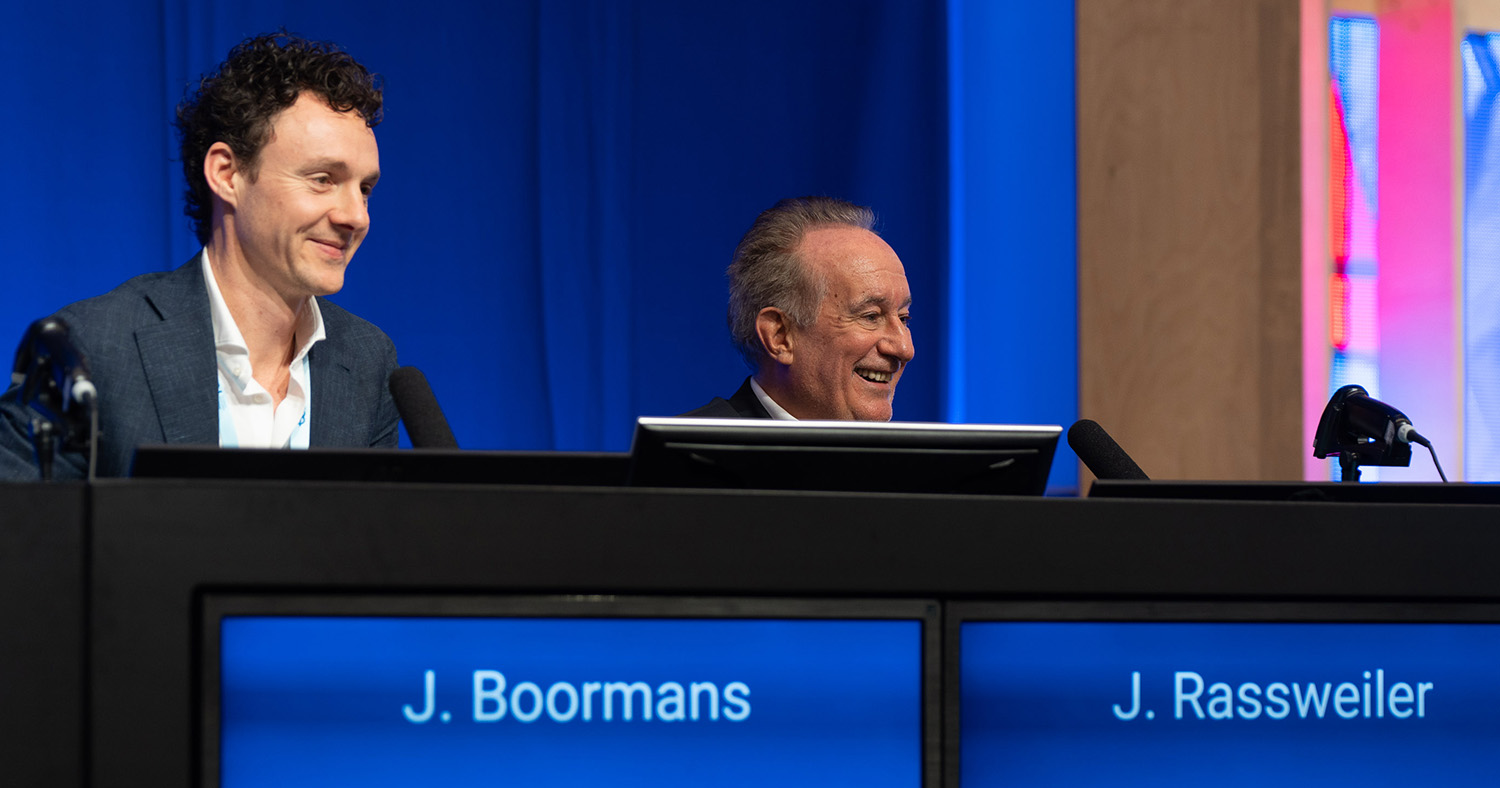The one about the urologist who never has complications
ESU Chair Prof. Liatsikos (GR) has met the urologist who never has complications: “He comes in at 9:30, gets a coffee, talks to his colleagues, and leaves again at 12:00 having done nothing. He has no complications. These people exist!”
On the third day of EAU24 in Paris, urological surgeons were well-served by attending the Plenary Session on complications. The session consisted of case presentations which were presented in the style of a discussion between young(er) presenters and a more experienced discussant.
This dynamic led to a very interactive, grounded and practical series of discussions, with a lot of participation from the audience. Everyone has their own experiences with complications, and their own approaches for avoiding them. Topics covered in these video-based discussions were: robotic management of vascular complications; rectal injury during pelvic surgery; ureteral avulsion during ureteroscopy; nightmares in percutaneous renal surgery; and what can go wrong during enucleation of the prostate.
Conversion to open surgery
The session was chaired by Profs. Joost Boormans (NL) and Jens Rassweiler (AT), both of whom were enthusiastic about the new format. Prof. Boormans:
“We saw a lot of nice interaction between presenters and discussants, they were clearly well prepared. Audience members also got up to offer their own views and experiences. People learn from these cases, it’s a great format to educate. I’m particularly impressed that participants are willing to ‘expose’ themselves in this way, giving examples of nightmare cases that they or people in their departments experienced.”
Can sessions like this help prevent dramatic complications? “I think these sessions certainly help, the audience got a lot of useful advice, even in general terms. Stay calm when things go wrong, and don’t hesitate to ask for assistance from other surgeons because you don’t want to pile error upon error.”
“One interesting point raised by Prof. Christian Fankhauser (CH) was the conversion from a robotic procedure to open surgery when vascular complications occur. Manufacturers might state that this can happen within 30 seconds, but in his experience it can be upward of five minutes, even for an experienced team. I’m going to start training my team for this conversion when I get back to Rotterdam!”
Prof. Rassweiler concurs: “As we are seeing more and more procedures being performed robotically, we have to be prepared to switch quickly to open surgery if complications arise, not just vascular problems.”
As an experienced Chair of the session on complications, Prof. Rassweiler was also happy with the new “discussion”-style format. “We used to have a presentation by an expert, then some discussion. Now we have it all in one topic, with two speakers, and I think 24 minutes is a very nice length per topic to really examine the complications and involve the audience.”
“Stone-related cases always bring up discussion from the audience, everyone has experiences to share. This is daily business for most urologists.”


